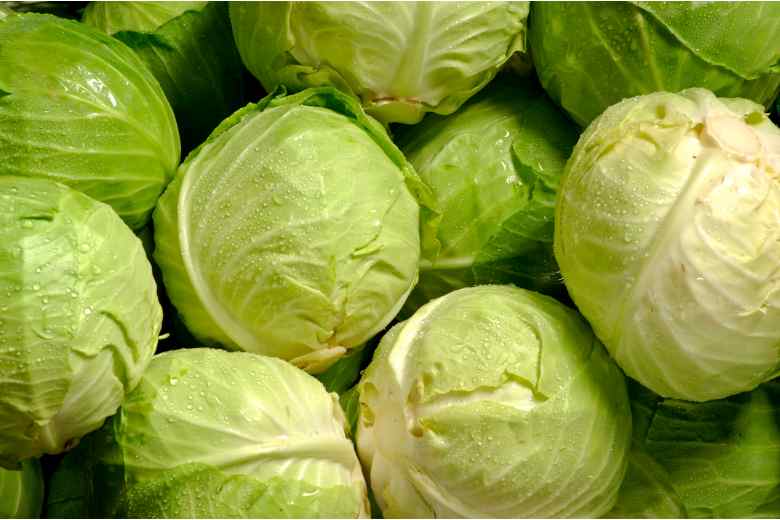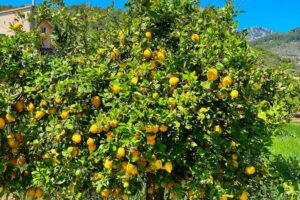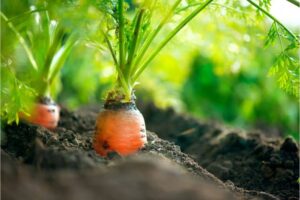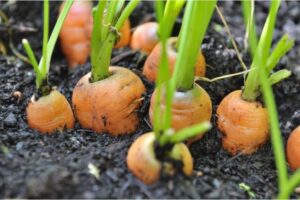
All season cabbage is a type of cabbage that can be grown year-round in most climates. It is a hardy, cool season vegetable that is easy to grow and very nutritious.
All season cabbage is available in a variety of shapes and sizes, ranging from tight, compact heads to loose, crinkled leaves. It is a rich source of vitamins, minerals, antioxidants, and dietary fiber, and can be eaten raw, cooked, or used to make sauerkraut and other fermented dishes. This versatile vegetable is an excellent addition to any garden, as it can be harvested throughout the year and is highly resistant to pests and disease.
What is Cabbage?
Cabbage is a versatile vegetable that is packed with nutrients and is a great addition to any meal. It is low in calories yet high in fiber, vitamins, and minerals.
Cabbage is rich in vitamin C, which helps your body absorb iron and protect cells from damage caused by free radicals. It is also an excellent source of vitamin K, which helps with blood clotting and bone health.
Cabbage can be eaten raw, steamed, stir-fried, or boiled and is a great addition to salads, soups, and stir-fries. Whether you’re looking to get more nutrients into your diet or trying to find a way to liven up your meals, cabbage is a great choice!
Nutritional Value of Cabbage
Cabbage is a powerhouse of nutrients. It contains many essential vitamins and minerals, including Vitamins C and K, folate, manganese, potassium, and iron. It also contains dietary fiber and antioxidants that help protect against oxidative stress.
Cabbage is low in calories, but provides a variety of health benefits. It can help reduce inflammation and protect against certain types of cancer.
Additionally, cabbage may help reduce cholesterol and promote heart health. So, if you’re looking for a nutrient-dense vegetable to add to your diet, cabbage is a great choice!
How to Grow Cabbage in Different Seasons
Cabbage is a versatile vegetable that can be grown in all seasons. Whether you’re looking to add a bit of crunch to your salads in the summer, or a hearty stew in the winter, cabbage is the perfect addition to any dish. With proper care and attention, you can easily grow cabbage in any season.
In the spring, sow the seeds in well-drained soil, spaced at least 12 inches apart, and ensure that the soil is kept moist for the best results. During summer, water the plants regularly and shade them from the hot sun to prevent wilting. In the fall, harvest the cabbage when the heads are firm and the leaves are thick and crunchy. During the winter, mulch the plants to protect them from frost and help them survive the cold months.
By following these tips, you can successfully grow cabbage in any season. With a little bit of planning and effort, you can enjoy cabbage year-round!

How to Store Cabbage
Cabbage is a versatile vegetable that can be used in many dishes. But storing it properly is essential for preserving its freshness and taste. Here are some tips on how to store cabbage:
1. Choose fresh, firm heads of cabbage. Avoid those with blemishes or soft spots.
2. Refrigerate the cabbage as soon as possible. Wrap it in a plastic bag and store it in the vegetable drawer of your refrigerator.
3. Consume the cabbage as soon as possible for best flavor. If you need to store the cabbage for a few days, use a damp paper towel to wrap it.
4. Freeze or pickle cabbage if you won’t be able to consume it within a few days. Freezing will help reduce spoilage.
By following these simple steps, you can easily store cabbage and make sure it lasts for a long time. Enjoy your delicious cabbage dishes!
Health Benefits of Eating Cabbage
Eating cabbage is more than just a great way to add flavor and texture to your meals; it also comes with a host of health benefits. Cabbage is an excellent source of vitamins C and K, as well as a good source of fiber. It is also packed with antioxidants which can help protect your cells from oxidative damage.
Additionally, cabbage is a natural anti-inflammatory, and can help reduce inflammation in the body. Eating cabbage is also linked with improved digestion, as it contains compounds that help the body break down food more effectively.
Finally, studies have linked cabbage to a reduced risk of certain cancers, making it a great choice for those looking to improve their overall health. With all these benefits, it is easy to see why cabbage has earned its place on the dinner table!
FAQs About the all season cabbage
What is all season cabbage?
Answer: All season cabbage is a type of cabbage that is bred to tolerate a wide range of growing conditions, making it an excellent choice for farmers and gardeners who want to produce cabbage year round.
How do I plant all season cabbage?
Answer: All season cabbage can be planted in early spring or late winter, depending on the climate. Plant the seeds about 1/2 inch deep in a well-drained, fertile soil. Water regularly throughout the growing season.
What are some common uses for all season cabbage?
Answer: All season cabbage is popular in dishes such as coleslaw, soups and stews, stir-fry, and even in raw salads. It is also used as an ingredient in sauerkraut.
Conclusion
All season cabbage is a great vegetable to have in your garden due to its versatility and hardiness. It can be grown in a variety of climates and tolerates both cold and heat. It is a perfect choice for home gardens, as it is easy to grow and produces a large harvest. Its flavor is mild and sweet, making it a great addition to any dish. All season cabbage is a popular vegetable choice for many, and its hardiness makes it the perfect choice for any season.




